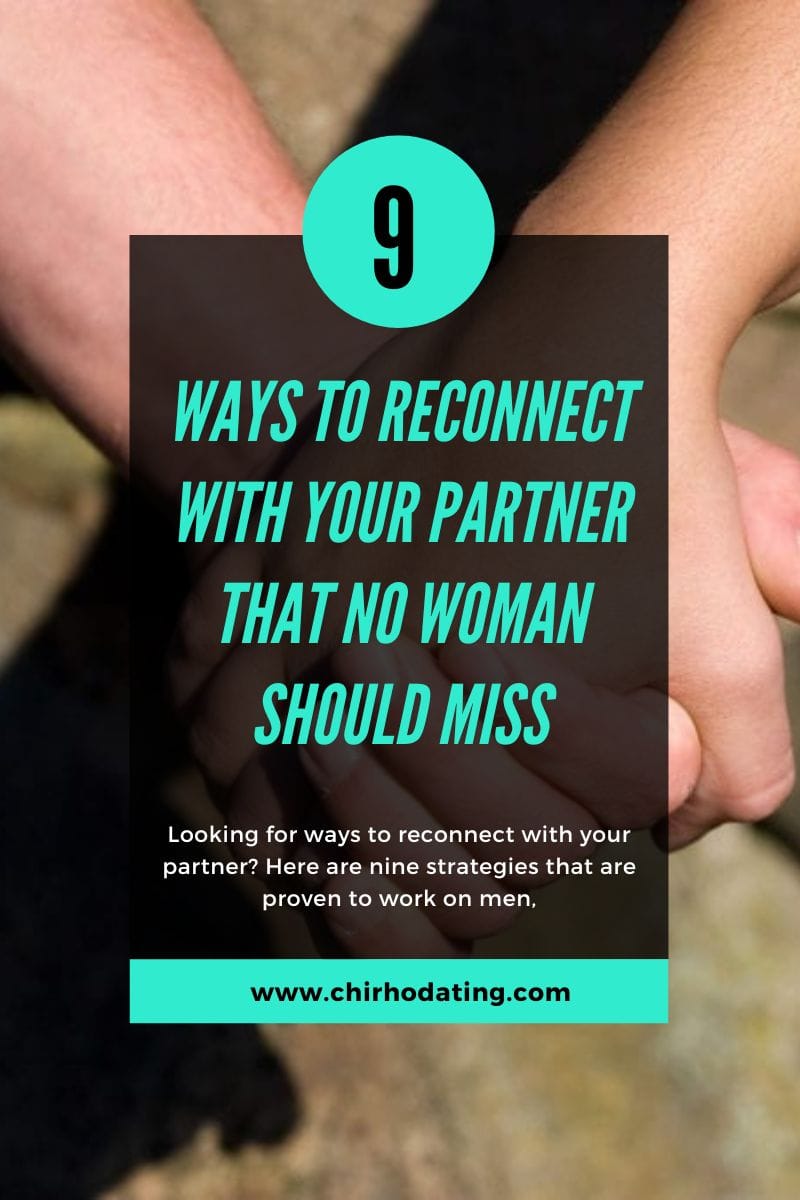We are a professional review company that receives compensation from companies whose products we review. We test each product thoroughly and give high marks only to the ones that are the very best. We are independently owned, and the opinions expressed here are our own.
In today’s fast-paced world, many women grapple with feelings of neglect and emotional isolation in their relationships. It’s common to feel that your partner is no longer as attentive or affectionate as they once were. These feelings can lead to emotional distress and a profound sense of being unloved. This article aims to provide actionable steps to help you reconnect with your partner and rekindle the love and intimacy you once shared.
Understanding the Feeling of Being Unloved
Feeling unloved in a relationship can manifest in various ways. You might notice that your partner has stopped initiating romantic gestures, or perhaps the relationship feels one-sided, with you putting in most of the effort. Emotional abandonment, where your emotional needs are consistently overlooked, can also contribute to these feelings. Recognizing these signs is the first step toward addressing the issue.
Common signs of feeling unloved include:
- Lack of Initiation: Your partner no longer initiates dates, intimacy, or quality time.
- One-sided Effort: You feel like you are putting in all the effort to maintain the relationship.
- Emotional Abandonment: Your emotional needs are consistently overlooked or dismissed.
- Decreased Communication: Your partner stops sharing their thoughts and feelings with you.
- Physical Disconnection: A noticeable decrease in physical affection such as hugs, kisses, or hand-holding.
- Lack of Appreciation: Your partner rarely shows appreciation or gratitude for your efforts.
- Increased Arguments: Frequent arguments or conflicts with little resolution can indicate underlying emotional issues.
- Avoidance: Your partner seems to avoid spending time with you or engaging in meaningful conversations.
- Feeling Invisible: You often feel ignored or invisible in your partner’s presence.
Understanding these signs helps you identify the root causes of your feelings and prepares you to take the necessary steps to address them.

The Issue of Initiation
One major complaint among women is that their partners stop initiating romantic gestures, intimacy, or quality time. This lack of initiative can leave one feeling neglected and questioning their partner’s affection. These feelings of neglect can stem from deeper relationship issues, such as insecurity or unresolved trauma, and addressing them requires a conscious effort from both partners.
To encourage your partner to take initiative, consider the following tips:
- Express Your Needs Clearly: Communicate your desire for more initiation in a non-confrontational manner. For example, say, “I love it when we plan date nights together. It makes me feel valued.”
- Set an Example: Show your partner what initiation looks like by planning special activities or gestures. This can set a positive tone and encourage reciprocal actions.
- Positive Reinforcement: When your partner does take the initiative, acknowledge and appreciate it. Positive reinforcement can motivate them to continue these behaviors.
Addressing these dynamics can help you better navigate your feelings and work towards a healthier, more fulfilling relationship.
Understanding these dynamics allows you to navigate your feelings better and work towards a healthier, more fulfilling relationship.
Read more about common relationship challenges and how to address them by clicking here (Chi Rho Dating).
Addressing One-sided Effort
Feeling like you are the only one putting effort into the relationship can be incredibly frustrating and disheartening. When the effort is one-sided, it can lead to resentment and a feeling that your partner does not value the relationship as much as you do. This imbalance often results in one person always planning activities, making emotional investments, or resolving conflicts.
Here are some strategies to create a more balanced relationship:
- Communicate Openly: Discuss your feelings with your partner. Use “I” statements to express how you feel without sounding accusatory. For example, “I feel overwhelmed when I am the only one planning our activities.”
- Set Mutual Goals: Work together to set goals for your relationship. This can include planning date nights, sharing household responsibilities, or scheduling time to discuss your day.
- Share Responsibilities: Distribute tasks and responsibilities evenly. This helps manage daily activities and shows that both partners are equally invested in the relationship.
- Acknowledge Efforts: Make it a point to acknowledge and appreciate each other’s efforts. This positive reinforcement can encourage more balanced participation from both partners.
- Seek Compromise: Find a middle ground on issues with differing opinions or preferences. Compromise ensures that both partners feel heard and valued, fostering a sense of equality.
Creating a balanced relationship requires effort from both parties. Communicating openly and setting mutual goals can foster a sense of partnership and shared responsibility.
Click here to read about navigating emotional isolation in relationships.
Emotional Abandonment
Emotional abandonment can be particularly painful and damaging in a relationship. When one partner feels emotionally neglected, it can lead to feelings of loneliness and disconnection, even if they are physically present with their partner. Emotional abandonment often occurs when emotional needs are consistently overlooked or dismissed, leading to a sense of invisibility and insignificance.
Here are ways to address and prevent emotional abandonment:
- Open Communication: Foster open and honest communication about your emotional needs. Let your partner know how their actions (or inactions) affect you. For instance, you might say, “I feel lonely when we don’t spend quality time together.”
- Emotional Check-ins: Regularly check in with each other about how you feel emotionally. Each week, this can be a scheduled time where both partners share their feelings and listen to each other without judgment.
- Show Empathy: Make an effort to understand your partner’s feelings and perspectives. Showing empathy and validating their emotions can bridge the gap caused by emotional neglect.
- Quality Time: Prioritize spending quality time together without distractions. This could be a regular date night, a walk in the park, or simply sitting down to talk about your day.
- Seek Professional Help: If emotional abandonment is a recurring issue, consider seeking the help of a therapist. A professional can provide strategies and tools to improve emotional connection and communication.
By addressing emotional abandonment through these strategies, you can work towards a more emotionally fulfilling and connected relationship.
Learn more about repairing relationships and strengthening bonds by clicking here.

Improving Communication
Effective communication is the cornerstone of any healthy relationship. When communication breaks down, it can lead to misunderstandings, feelings of neglect, and emotional disconnection. Improving communication involves talking, listening, and understanding each other’s perspectives.
Here are some tips to improve communication with your partner:
- Practice Active Listening: Make a conscious effort to listen to your partner is words without interrupting. Show that you are engaged by nodding, making eye contact, and providing feedback.
- Use “I” Statements: Communicate your feelings and needs without blaming your partner. For example, say, “I feel hurt when we don’t spend time together” instead of “You never make time for me.”
- Avoid Assumptions: Don’t assume you know what your partner thinks or feels. Instead, ask them directly and listen to their response.
- Schedule Regular Check-ins: Set aside time each week to talk about your relationship and any issues that may have arisen. This regular communication can prevent minor problems from becoming bigger ones.
- Seek to Understand, Not Just to Respond: Focus on understanding your partner’s point of view rather than just waiting for your turn to speak. This can foster empathy and better communication.
Implementing these communication strategies can enhance your connection with your partner and address feelings of being unloved or neglected.
Click here to read more about effective communication in relationships.

Rekindling Romance and Intimacy
Rekindling romance and intimacy is crucial for maintaining a solid connection in a relationship. Over time, the initial spark can fade, leading to feelings of neglect and emotional distance. However, with intentional efforts, you can revive the romance and intimacy in your relationship.
Click here if you want ten tips to rekindle your romance.
Here are some ways to rekindle romance and intimacy:
- Plan Regular Date Nights: Schedule regular dates to spend quality time together. Whether it’s a fancy dinner or a cozy movie night at home, making time for each other can reignite the romantic spark.
- Surprise Each Other: Small surprises can go a long way in making your partner feel special. This could be as simple as leaving a sweet note, planning a surprise outing, or doing something thoughtful for them.
- Express Affection: Physical touch is essential for maintaining intimacy. Make an effort to show affection through hugs, kisses, holding hands, or any other gestures that make your partner feel loved.
- Communicate Your Desires: Discuss your desires and what makes you feel connected. This can help both partners understand each other’s needs and work together to fulfill them.
- Try New Activities Together: Exploring new hobbies or activities can bring excitement and novelty to your relationship. It also provides opportunities to bond and create new memories together.
By incorporating these strategies, you can rekindle the romance and intimacy in your relationship, making both partners feel more connected and valued.
Discover more ways to strengthen your relationship by clicking here.

Focusing on Self-empowerment
Building self-esteem and independence is vital to maintaining a healthy relationship. Relying too heavily on your partner for emotional validation can create an unhealthy dynamic and lead to feelings of inadequacy and dependency. Fostering self-empowerment helps you feel more confident and secure, positively impacting your relationship.
Here are some ways to focus on self-empowerment:
- Pursue Personal Interests and Hobbies: Engage in activities that you enjoy and that bring you satisfaction. Whether painting, hiking, reading, or learning a new skill, dedicating time to your passions can boost your self-esteem and provide a sense of accomplishment.
- Set Personal Goals: Establish goals that are important to you, both short-term and long-term. Achieving these goals can give you a sense of purpose and direction. Celebrate your successes, no matter how small they may seem.
- Practice Self-care: Prioritize your physical and mental well-being. Regular exercise, a healthy diet, adequate sleep, and mindfulness practices such as meditation or yoga can enhance your overall well-being and self-worth.
- Develop a Support Network: Cultivate relationships with friends and family who support and uplift you. A solid support network provides a sense of community and belonging, essential for emotional resilience.
- Learn to Be Alone: Spending time alone can help you become more comfortable with yourself and less dependent on others for your happiness. Use this time for reflection, relaxation, and pursuing activities that you enjoy independently.
- Seek Professional Development: Invest in your career or personal development by taking courses, attending workshops, or gaining new qualifications. Professional growth can significantly enhance your confidence and independence.
- Practice Positive Self-talk: Replace negative thoughts with positive affirmations. Encourage yourself with words that boost your confidence and remind you of your strengths and capabilities.
By focusing on self-empowerment, you can bring a more confident and independent version of yourself into your relationship. This will benefit you and contribute to a healthier, more balanced partnership where both individuals feel valued and fulfilled.
For further reading on building self-esteem and improving relationships, click here to explore more resources and expert advice from me.
To your success,



What do you think about the article you've just read? Please tell me below.